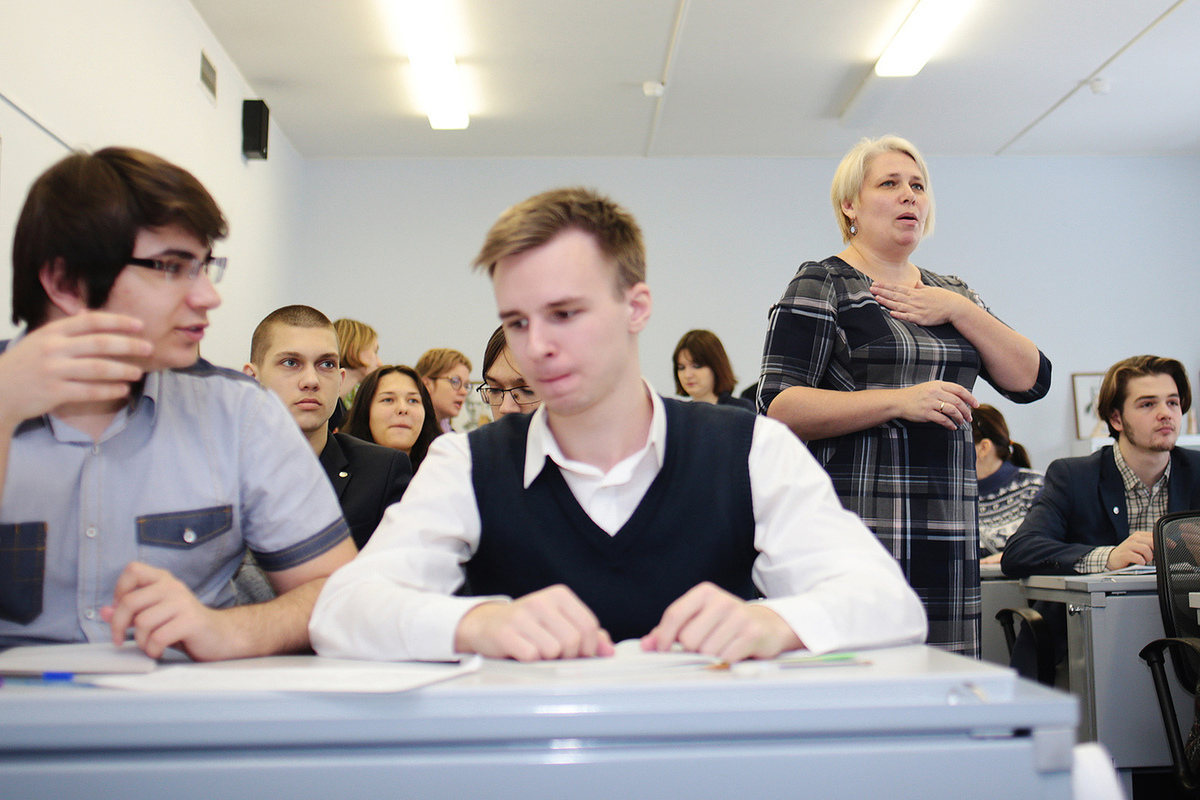Schools were asked to combine history and social studies into one state exam
[ad_1]

Assistant to the President of the Russian Federation, historian Vladimir Medinsky came up with the idea of combining history and social studies at state exams, the Unified State Exam and the Basic Exam. This proposal was voiced by the chairman of the Russian Military Historical Society and the author of new school history textbooks at a meeting with “specialized” teachers and political science teachers.
According to Medinsky, such an examination association “will make it possible to preserve the subject,” that is, social studies, in school. Otherwise, “many employees of ministries and departments” intended to “eliminate (the item) as harmful.”
“Ultimately, ideally, in my opinion, it would be good for us to make a single Unified State Exam and Unified State Exam in history and social studies,” said the state adviser. “Just add social studies questions.”
This “story with social studies” happened because in February of this year the Ministry of Education came up with an initiative, and then with a draft order, changing the structure and program of social studies at school. The subject is now proposed to be taught from grades 9 to 11 (previously started from grade 6). In addition, the discipline will be cut by the hour, allocating only an hour a week to social studies in grades 9-10 (two hours in grade 11). The initiative was also approved by parliament.
Not everyone in the schools was happy with this decision. First of all, high school students who traditionally choose social studies as an additional subject for the Unified State Exam. With this “extra” you can then enroll in a wide range of specialties – from the humanities, economics, management and law to IT and engineering.
Last year, 46% of graduates passed the additional unified state exam in social studies. In 2024, the percentage was not announced, but it is known that social science topped the top three “advanced subjects” on the Unified State Exam (followed by computer science and biology). This is even after the Unified State Exam assignments and questions underwent quite serious changes at the beginning of the year.
And the teachers, needless to say, were not happy. Usually historians take the second qualification, “social studies,” and have two loads. But no one has canceled the hourly payment system for teachers: if you lose hours, you lose money. In addition, there are social science teachers as such who, with the introduction of a new approach to education, will be left without two-thirds of their earnings.
True, schools have already been promised that graduates will not suffer from the revision of the discipline. They say that all ninth-graders who also like to take social studies as an elective for the OGE will only be glad that their task has been made easier. They are promised a “practice-oriented presentation of material” that “will not cause difficulties” in the exam.
If the departmental order works, then teaching social studies in a new way will begin in schools from September 1, 2025.
“The most interesting thing is that in the Law “On Education,” which sets out the rules for final certification, there is nothing that would contradict the idea of combining subjects,” says methodologist and teacher Anastasia Gordeeva. — The law talks about educational programs, the procedure for conducting final certification, about control… Nothing about what cannot be taken and combined by passing the program of two school courses within the framework of one exam. Simply because it never occurred to anyone.
Of course, it will be difficult and hardly possible at all to organize such a “two in one”. If only because two expert commissions for the preparation of CMMs (testing and measuring materials – exam tasks) must agree… But seriously, there is a whole technology for developing and approving CMMs, there are strict requirements. Such serious things, with mention of didactic units, the validity of materials and testing, adherence to educational standards, and so on. To put it simply, first comes the stage of applications, reconciliations, approval by experts, and interaction between departments. Then discussion and testing by trade unions, then more public discussion. According to conservative estimates, the final development and approval of “new exam tasks” takes 5-7 years. Only if you leave all this out…
And if “according to the protocol”, imagine what difficulty the KIMs will cause in two subjects at once, history and social studies. Programs for both change and are revised. So, it is still unclear what to compare with, what to correspond to. In fact, this is a collaboration that has never been seen before in our education system. It will not be possible to quickly and easily combine history with social studies to pass state exams, the Unified State Exam and the Unified State Exam.
[ad_2]
Source link








